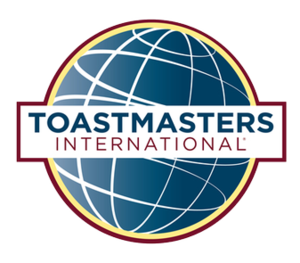 Italiano: Author, life coach, and motivational speaker Tony Robbins. (Photo credit: Wikipedia)[/caption]
Italiano: Author, life coach, and motivational speaker Tony Robbins. (Photo credit: Wikipedia)[/caption]The most effective speakers -- Brian Tracy, Carly Fiorina, Tony Robbins -- do not get up on the stage and deliver a memorized speech. Quite the contrary. What makes them so effective is that they speak from the gut, on a subject they know intimately, and are up there sharing their "selves" with the audience. I admire those speakers, becuase they are so conversational, so natural. And being so natural, they are also magnetic.
There is something to be said for memorization. One should know what the underlying message is. Next, one should break down that message into its components. Next, one should list those cmoponents in an outline. The outline may be the one item to memorize.
The components of a speech include its opening (or introduction), then the body (or meat of the speech, the explanation or expansion of the introduction), then a strong closing (a summary of the message). A strong closing is one that leaves the audience inspired to take action. What becomes of utmost importance is knowing what your message is. In the case of Tony Robbins, for example, his underlying message is how to change one's life. To that end, he organizes day-long or weekend-long seminars in which he speaks about his message, conducts exercises, has audience participation, and generally inspires the audience to action. But his basic message is the same. And that's one of the essential elements of a natural speaker: Know your subject, and speak about it repeatedly. In fact, make it yours.
[caption id="" align="alignright" width="183"]
 Toastmasters International (Photo credit: Wikipedia)[/caption]
Toastmasters International (Photo credit: Wikipedia)[/caption]In Toastmasters, we have to write and deliver speeches on various topics, to satisfy various requirements, such as, "Show What You Mean," or "Your Body Speaks" or "The Toast" or "Deliver a Eulogy." Very specific, and time limited. In order to fit into those parameters, one usually devises some topic to speak about, proceeds to write it down, and it not committed to memory, one resorts to repeatedly glancing down at one's notes to remember the points one wants to convey, all the while keeping an eye on the timing lights! Oh, and don't forget to breathe! I'm guilty as charged.
Granted that even the Big Wigs are timed. Witness Ben Bernanke testifying before Congress, and he is subject to the same timing lights used at Toastmasters. The questioning panel of congressmen likewise are timed. But that's no consolation. In the case of testimony before Congress, one's "speech" is directly linked to one's job, and is usually a response to a question. One does not stand in front of Congress delivering a speech -- unless one is the POTUS, and he has a teleprompter!
A suggestion has been made to create a "backpocket speech." This is a speech that is always available when one is called upon, practiced, rehearsed, and is always the same. Good idea.
OK, let's construct an outline.
Title: "This is Your Brain - on Music"
Introduction: Music is a universal language.Body: A. When did "music" begin and whyB. What do you mean, "language"?B. Importance/significance of such universality.Close: Whichever kind you like, enjoy music! It will enrich you.
No comments:
Post a Comment